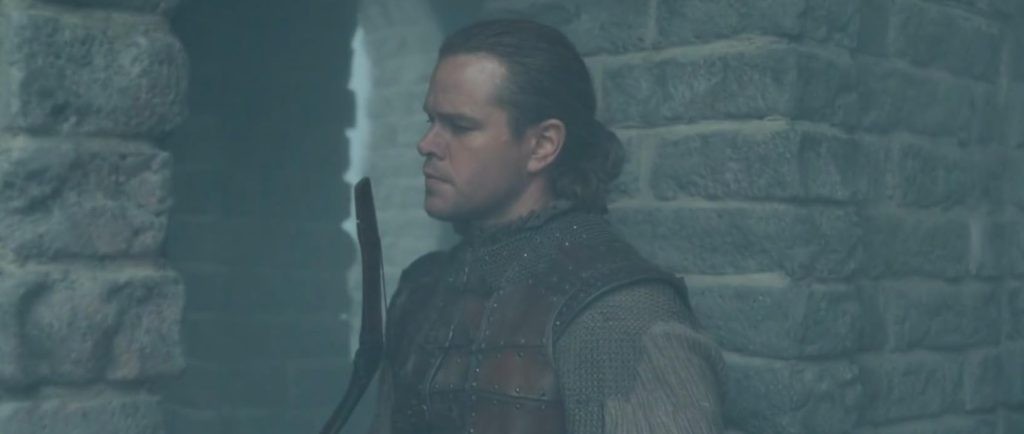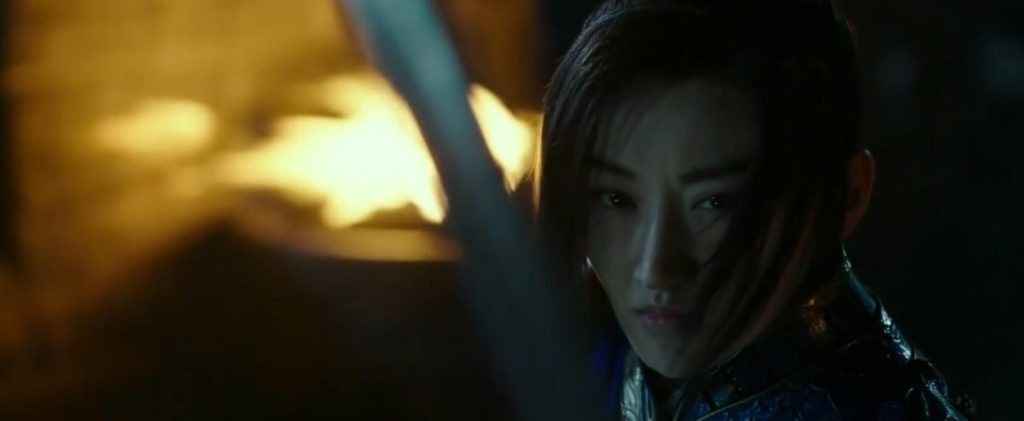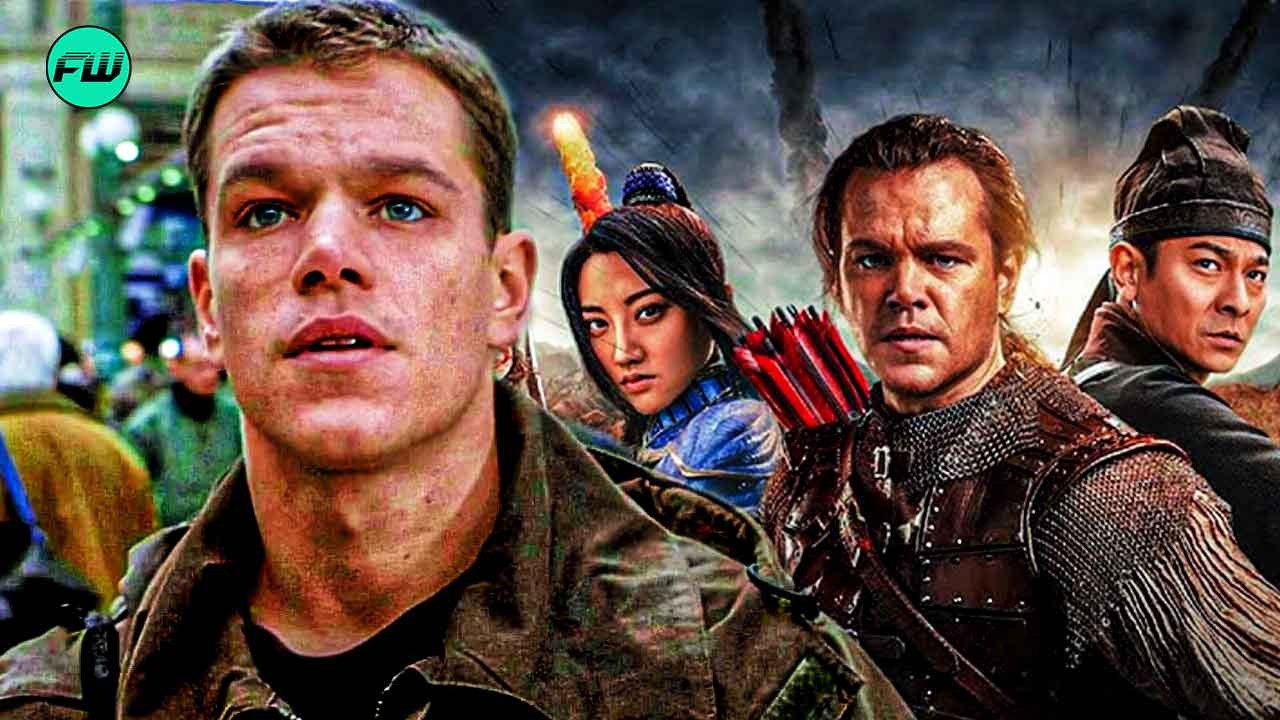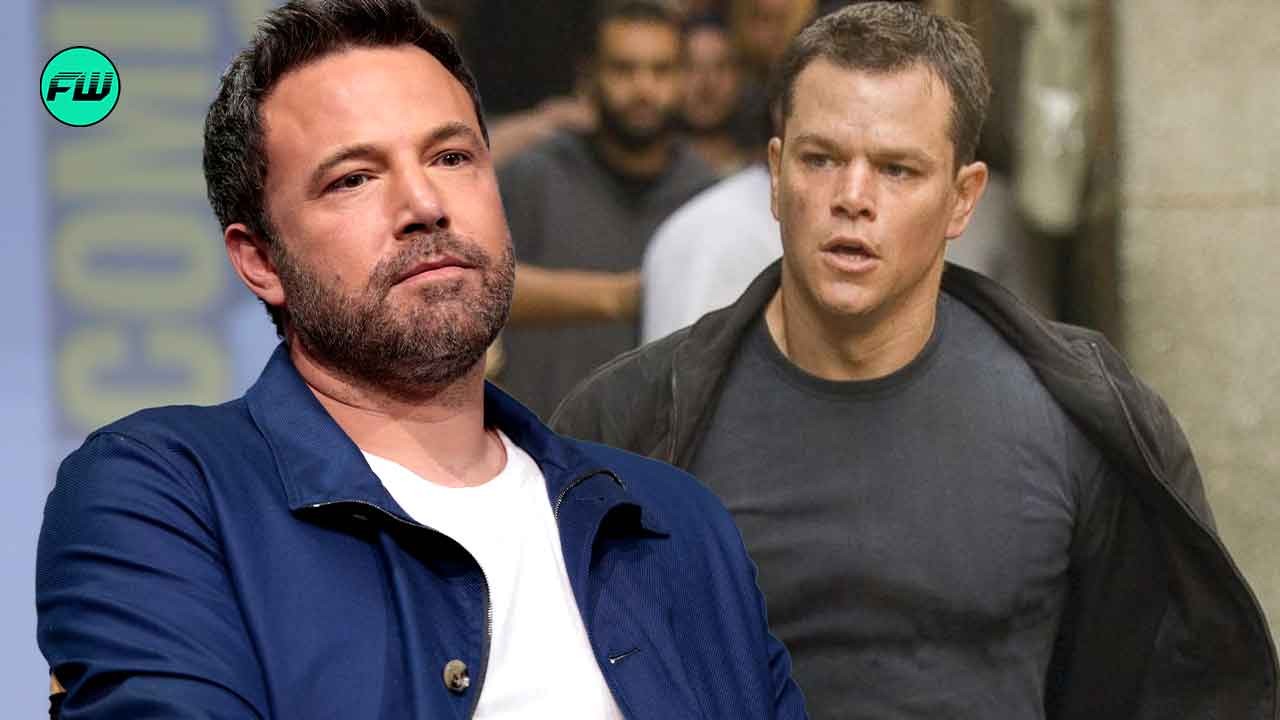Matt Damon’s filmography boasts credits that illustrate the actor’s bankable stature. But one endeavor that often gets overlooked, presumably because of the reception it received pre- and post-release, was Zhang Yimou’s The Great Wall. Looking back on the project, the Oppenheimer alum acknowledged discerning early on that the movie may be a disaster. And disaster it was—if you consider its box office performance and critics’ evaluations, at least.

It wasn’t just that, though. Leading up to the film’s release, the implications of Damon’s inclusion in a premise set in medieval China, where he starred as a European mercenary warrior who joins forces with the Chinese to help combat an alien threat, was not treated lightly. Accusations faulted the initiative for utilizing the ‘white savior trope’ and ‘whitewashing.’
Of course, those are arguments that characterize many Hollywood endeavors. However, the verdict after The Great Wall‘s release had been to conclude otherwise.
Alas, the conversations soon shifted, and one aspect of the production, highlighting the extent of the movie’s Chinese influence in an American-China co-production and how it could have served as a landmark in the Chinese film industry, was left majorly unnoticed.
Matt Damon’s The Great Wall Had The Backing Of A Huge Chinese Creative Force

Although Matt Damon‘s starring role in the lead may have, at least in some critics’ opinions, detracted from the release and sparked controversy surrounding whitewashing and the white savior trope (elements which have been prevalent in many Hollywood productions), what audiences couldn’t pay heed to brought forth an ironic element to the discourse.
Talking to The Washington Post, Associate Professor of Media Studies at the University of Virginia, Aynne Kokas, who also authored the 2017 book Hollywood Made in China, shed light on why The Great Wall signified a paramount, one-of-a-kind initiative for an American-Chinese co-production.
She also delved into how the brass tacks of the Damon starrer were more Chinese in influence than previous big-budget efforts of the same kind:
“‘The Great Wall’ is definitely among the biggest budget co-productions, and it’s the first very large budget one in which there is a major Chinese creative force behind it. That’s the part of the story that’s getting left out.”
The Great Wall not only had a well-known Chinese director at the helm, but it also had a predominantly Chinese cast that included prominent actors.

Additionally, it had the financial backing of a Chinese-owned Hollywood studio (Legendary Entertainment, a subsidiary of the Chinese conglomerate Wanda Group) and, as you could tell from its medieval setting in China, cultural themes relevant to the country.
The attempt with the 2016 endeavor had been to dominate the enormous markets of both countries for a lucrative, landmark step that could’ve helped broaden the influence of the Chinese film industry. While previous attempts were made, some succeeded only in China and failed to capture the American audience. Others, having lost their designation of a co-production, only stood victorious in the U.S.
According to the publication, the Chinese and Hollywood companies that financed the Zhang Yimou-directed picture believed that their method would result in a well-rounded triumph, whose success would herald China’s media influence in Hollywood and within the global context, unlike previous co-production efforts.
It was here, then, that the casting of Matt Damon, Willem Dafoe, and Pedro Pascal was presumably intended to draw audiences outside of China. However, the implications of this decision were what proved ultimately controversial.
The Great Wall Director Responded To The Matt Damon-Whitewashing Accusations

Of the controversy surrounding Matt Damon’s casting, which highlighted the film’s problematic aspects under the assumption that his character, as a European mercenary warrior, helps ‘save’ China, director Zhang Yimou addressed the accusations of white-washing and the ‘white savior trope.’
At the time, Crazy Rich Asian star Constance Wu voiced her criticism of the endeavor, stating that it was “perpetuating the racist myth that only a white man can save the world.” Her viewpoint was mirrored by many others, who highlighted the troubling implications of the leading role.
Yimou, taking the flak head-on, talked to EW and stated:
“In many ways, The Great Wall is the opposite of what is being suggested. For the first time, a film deeply rooted in Chinese culture, with one of the largest Chinese casts ever assembled, is being made at tent pole scale for a world audience.”

He followed by stressing some factors to refute the argument of placing a white character on a pedestal in a setting based in China:
“Our film is not about the construction of the Great Wall. Matt Damon is not playing a role … originally conceived for a Chinese actor. The arrival of his character in our story is an important plot point.”
The director maintained that Damon was one of five heroes in the story, with the other four being Chinese. He concluded, “I have not and will not cast a film in a way that was untrue to my artistic vision.”
The Great Wall had aimed to champion a marriage of two world markets to herald in a landmark for Chinese films and influence within and outside of Hollywood. If the effort succeeded, it’d have modeled future co-productions. At least, that is what the creative force hoped for.
The film was deemed a box-office failure, reportedly losing $75 million despite generating $335 million worldwide. It likewise garnered a poor critical reception, sitting at a 35% approval rating on Rotten Tomatoes. However, after much consideration, many people did agree that the movie was not an attempt to promote the white savior trope.
Matt Damon’s The Great Wall is available via buying/renting on Prime Video.




